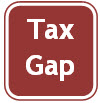
It’s become mildly fashionable in right wing circles to have a pot shot at my estimates of the tax gap. Mark Field MP was the most recent to do it on 21 July, saying in parliament:
The third myth is that IFCs engage in harmful tax practices. The Foot review suggested that the potential for tax leakage from so-called full tax jurisdictions, such as the UK, towards low-tax or zero-tax regimes, is relatively limited. Although the TUC has argued that the tax gap created in UK Government tax receipts as a result of offshore centres is some £25 billion, the Deloitte report commissioned by the Treasury at the time of the Foot report showed that only £2 billion is potentially lost in tax leakage per annum. Foot also concluded that the real figure might even be lower than that.
IFC is his preferred term for a secrecy jurisdiction — meaning international finance centre, which is the last thing these places are. But let’s leave that aside and instead note the reference to the tax gap. First, there is no suggestion whatsoever in my TUC calculation that all the loss referred to arose offshore. Far from it in fact. So the claim in the context he made is wrong. Second, even HMRC dismiss the Deloitte claim in their October 2009 report as ludicrous. HMRC said in December 2009 that large business (most likely to work offshore) avoided at least £3.1 billion a year in tax — substantially higher than the Deloitte number, showing just how ludicrous the work of that firm was (and what a shocking waste of taxpayer’s money it was to give them the commission to do the work).
But let’s also look at the reality. On July 23 Bloomberg reported:
Vodafone Group Plc, the world’s biggest mobile-phone company, agreed to pay 1.25 billion pounds ($1.93 billion) to the U.K. to settle a lawsuit over taxation of its European units based outside of Britain.
The deal with U.K. Revenue & Customs calls for 800 million pounds to be paid in the current financial year with the rest to be paid in instalments over the next five years, Vodafone said today in a statement about its first-quarter earnings.
Vodafone set aside 2.2 billion pounds to cover tax payments and interest in the case, the company said last year after it lost a Court of Appeal ruling. The dispute involved Vodafone’s Luxembourg unit and Britain’s so-called Controlled Foreign Companies laws relating to U.K. corporations that have units in European Union countries with lower tax rates.
“No further U.K. CFC tax liabilities will arise in the near future under current legislation,” Newbury, England-based Vodafone said in the statement. “Longer term, no CFC liabilities are expected to arise as a consequence of the likely reforms of the U.K. CFC regime.”
One company. One settlement. £1.25 billion, most of it from one deal.
The tax gap is £3.1 billion a year? Pull the other one, please. The idea is quite ridiculous.
Thanks for reading this post.
You can share this post on social media of your choice by clicking these icons:
You can subscribe to this blog's daily email here.
And if you would like to support this blog you can, here:



Isn’t China Mobile the biggest mobile company in the world? I heard that Vodafone has been usurped by Movistar as well, especially in Latin America.
The Vodafone 2 case did deal with 10 years of assessment, arising from the acquisition on Mannesman.
@JayPee
So?
It’s just one case
And it shows how massive are the losses – and the time it takes to recover them
“And it shows how massive are the losses – and the time it takes to recover them”.
Not really. The Vodafone case revolved around an ambiguous drafting of the CFC legislation enacted by the last government which the tax payer successfully argued was in contravention of EU directives. Te settlement was for 50% of the amount the tax payer had previously set aside as a reserve.
It appears that the tax payer has reahed an agreement with HMRC that the tax payer will not incur any further CFC liabilities under the current arrangements and legislation (i.e. tax gap going forward = 0).
@Alex
Oh what nonsense
A case is taken
A settlement is made
And there was no tax gap?
What sort of fantasy do you live in?
“@Alex
Oh what nonsense
A case is taken
A settlement is made
And there was no tax gap?
What sort of fantasy do you live in?”
The real world. As you well know HMRC has a habit opf bludgeoning companies and trying to settle. In this case, Vodafone bought their German operations from Mannesman I think sometime near the end of the twentieth century, putting a lot of its European operations below a Lux holding company, which at the time was regarded as normal tax planning.
HMRC had the CFC laws changed and had one of its goes at the ta payer, who challenged as far as the ECJ, who ruled that the UK laws contravened the right of UK firms to establish subs anywjere in the EU. I don’t recall how it went after that but these out of court settlements (at a lower value than HMRC were initially going for) are inappropriate.
The most disgraceful settlement that I recall is when the IR threatened all the UK airline operators with legislation to class commercial aircraft as long life assets unless they agreed to treat their planes as being 50% long life and 50% normal WDA, although they would never actually say which 50% of the aircraft was supposed to last longer than 25 years, and I don’t know of any major commercial airline that owned planes more than 25 years old.
@Alex
So HMRC is not allowed to uphold what it believes to be the law?
That really is a very odd idea Alex
And one no one will take seriously
Thankfully